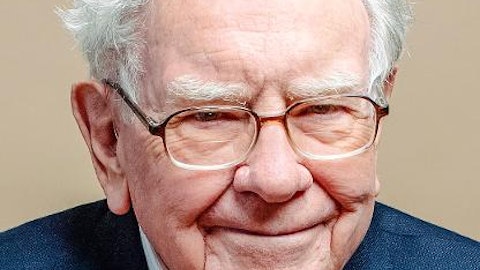Ten firms finished on a lackluster note on Tuesday, bucking a broader market optimism, amid a series of company-specific developments and industry news dampening investing appetite.
Meanwhile, Wall Street’s major indices all finished in the green, led by the tech-heavy Nasdaq at 1.39 percent, followed by the S&P 500 with a 1.13-percent gain, and the Dow Jones at 1.10 percent.
Indices aside, we name the 10 worst-performers on Tuesday and detail the reasons behind their decline.
To compile the list, we focused exclusively on stocks with $2 billion in market capitalization and at least 5 million shares in trading volume.

Photo by Tima Miroshnichenko on Pexels
10. Hims & Hers Health, Inc. (NYSE:HIMS)
Shares of telehealth company Hims & Hers Health dropped by 4.04 percent on Tuesday as investors mirrored a selloff from key executives of the company, which included none other than its CEO.
In a regulatory filing, Hims & Hers Health, Inc. (NYSE:HIMS) said its CEO, Andrew Dudum, sold $33.4 million of shares in the company, involving 660,000 units at a price of $50.58 apiece.
The transaction was aimed at cashing in on gains from the stock’s recent rally.
Despite the sale, Dudum remains the largest individual shareholder, owning 8 million indirect shares and 92,313 direct holdings in Hims & Hers Health, Inc. (NYSE:HIMS).
Meanwhile, other key executives also resorted to profit-taking in the past trading days.
In separate filings, Chief Legal Officer Soleil Boughton sold 2,572 shares at a price of $51.64 apiece for $132,818, while Chief Medical Officer Patrick Carroll disposed of 60,000 shares for a total of $3.2 million.
Since the start of the month, shares of Hims & Hers Health, Inc. (NYSE:HIMS) have already dropped by 27.5 percent.
9. IonQ, Inc. (NYSE:IONQ)
Shares of IonQ declined by 4.32 percent on Tuesday to finish at $43 apiece amid the lack of catalysts to sustain the recent two-day rally.
In the previous trading days, IonQ, Inc. (NYSE:IONQ) grew alongside its quantum computing peers after a large US pension fund—the New Jersey State Pension Fund—increased its exposure in the quantum computing sector with the acquisition of shares in IonQ, Inc. (NYSE:IONQ), D-Wave Quantum Inc. (NYSE:QBTS), and Rigetti Computing Inc. (NASDAQ:RGTI).
In line with the transaction, the fund divested its stake in Alibaba Group Holding Ltd. (BABA).
In other news, IonQ, Inc. (NYSE:IONQ) filed for a prospectus on behalf of several existing shareholders for the sale of more than 13 million IONQ common shares.
IonQ, Inc. (NYSE:IONQ) said it will not receive any proceeds from the proposed sale.
8. CoStar Group, Inc. (NASDAQ:CSGP)
CoStar Group extended its losing streak to a 6th consecutive session on Tuesday, shedding 4.37 percent to close at $88.46 as investors continued to exercise caution over a legal case involving the company.
Just recently, the company slapped real estate marketplace firm Zillow with a copyright infringement lawsuit and sought damages that could be worth more than $1 billion.
The case stemmed from claims that Zillow published more than 46,000 copyrighted images, which CoStar Group, Inc. (NASDAQ:CSGP) owns.
According to the latter, the images appeared more than 250,000 times on the Zillow platform.
“CoStar Group has built the world’s largest library of real estate photographs. Over decades, CoStar Group has employed or hired thousands of professional photographers who have created millions of real estate images, which are owned and copyrighted by CoStar Group. CoStar Group’s team of dedicated architectural photographers takes, and the company copyrights, over two million original real estate photos annually,” it said.
Additionally, CoStar Group, Inc. (NASDAQ:CSGP) claimed that Zillow has been distributing photos under syndication agreements with Realtor.com and Redfin.
The companies have yet to release a statement regarding the issue.
7. XPeng Inc. (NYSE:XPEV)
XPeng Inc. snapped a three-day winning streak on Tuesday, losing 6.08 percent to close at $20.08 apiece as investors repositioned portfolios ahead of the release of its earnings performance next week, while also digesting news of lower vehicle deliveries in China.
According to the company, it is set to announce the results of its second quarter earnings performance before market open on Tuesday, August 19.
In other news, XPeng Inc. (NYSE:XPEV) confirmed last week the launch of its first hybrid vehicle in the fourth quarter of the year.
This followed the release of China’s Ministry of Industry and Information Technology’s catalog of expected vehicle launches, which included the X9 EREV, the hybrid version of the X9 variant.
According to XPeng Inc. (NYSE:XPEV) CEO He Xiaopeng, the X9 EREV will be a global model, having been tested in 20 countries and 330 cities.
The X9 EREV is slightly longer than the all-electric X9, and is equipped with a 1.5-liter engine as an extender.
Meanwhile, the China Association of Automobile Manufacturers (CAAM) said that total EV deliveries, comprising passenger and commercial vehicles, slid by 5 percent month-on-month to 1.26 million units in July.
The decline was attributed to Beijing’s earlier calls to roll back on discounts and focus on profitability first.
6. Cardinal Health, Inc. (NYSE:CAH)
Cardinal Health dropped its share prices by 7.21 percent on Tuesday to finish at $146.3 apiece as investors soured on its dismal revenue performance in both the fourth quarter and the full fiscal period of 2025.
In its updated report, Cardinal Health, Inc. (NYSE:CAH) said revenues in the fourth quarter of the year finished flat at $60 billion, but attributable net income grew by 11 percent to $501 million from $450 million in the same period last year.
In the full fiscal year of 2025, revenues decreased by 2 percent to $222.6 billion from $226.8 billion last year. Attributable net income, however, grew by 7 percent to $2 billion from $1.9 billion year-on-year.
In other news, Cardinal Health, Inc. (NYSE:CAH) announced the acquisition of Solaris Health through its management services organization (MSO), The Specialty Alliance.
Under the transaction, Cardinal Health, Inc. (NYSE:CAH) will infuse $1.9 billion in cash into The Specialty Alliance, in turn, raising its ownership in the latter to approximately 75 percent.
Cardinal Health said it expects the transaction to close by the end of the year, subject to closing conditions, including the receipt of required physician and regulatory approvals.
5. NIO Inc. (NYSE:NIO)
NIO Inc. snapped a four-day winning streak on Tuesday, losing 8.96 percent to close at $4.47 apiece after news of lower electric vehicle deliveries sparked investor concerns on the overall EV industry.
According to data from the China Association of Automobile Manufacturers (CAAM), total EV deliveries comprising passenger and commercial vehicles slid by 5 percent to 1.26 million units in July from June figures.
The decline followed Beijing’s earlier calls to manufacturers to roll back on discounts and focus first on profitability.
For its part, NIO Inc. (NYSE:NIO) delivered 21,017 vehicles last month, higher by 2.5 percent than the 20,498 in the same month last year, but was notably slower than the double-digit year-on-year growth in the past three months.
June deliveries were higher by 17 percent; May was up by 13 percent; while April increased by 53 percent.
According to NIO Inc. (NYSE:NIO), July’s deliveries consisted of 12,675 vehicles from NIO’s premium smart electric vehicle brand NIO; 5,976 vehicles from the family-oriented smart electric vehicle brand ONVO; and 2,366 vehicles from the small smart high-end electric car brand Firefly.
To date, the company has already delivered a cumulative total of 806,731 vehicles, of which the NIO brand accounted for 737,923, followed by the ONVO brand with 58,599, and Firefly with 10,209.
4. Summit Therapeutics Inc. (NASDAQ:SMMT)
Summit Therapeutics tumbled by 9.08 percent on Tuesday to close at $25.68 apiece as investor sentiment was dampened by a dismal earnings performance as well as the absence of an investor call to elaborate on the results.
Summit Therapeutics Inc. (NASDAQ:SMMT), which usually reports its quarterly earnings alongside an investor call, decided go without the latter on Monday.
In the second quarter of the year, Summit Therapeutics Inc. (NASDAQ:SMMT) widened its net loss by 836 percent to $565.7 million from $60.4 million in the same period last year, as total operating expenses soared by 853 percent to $568.4 million from $59.6 million year-on-year.
Net loss in the first half also expanded by 505 percent to $628.6 million from $103.9 million year-on-year, as total operating expenses jumped 522 percent to $635.3 million from $102 million.
Summit Therapeutics Inc. (NASDAQ:SMMT) also skipped to comment on its financial and operating results.
3. Celanese Corp. (NYSE:CE)
Celanese extended its losing streak to a third straight day on Tuesday, as investor sentiment was dampened by a weak outlook for the rest of the year.
In a statement, Celanese Corp. (NYSE:CE) said it expects “a softening demand environment across most key end-markets in the second half of the year.”
“The company anticipates slowing demand will partially offset the benefits from the cost reduction actions that are expected to be realized in the third quarter. Additionally, [Celanese Corp. (NYSE:CE)] anticipates an approximate $25 million negative sequential impact to earnings due to ongoing inventory reduction efforts,” it said.
In the second quarter of the year, Celanese Corp. (NYSE:CE) grew its net income by 28 percent to $199 million from $155 million in the same period last year.
Net sales, however, dipped by 4.5 percent to $2.5 billion from $2.65 billion year-on-year.
Commenting on the performance, President and CEO Scott Richardson said that he was pleased with the company’s earnings results. Despite the more cautious outlook, he was confident that their action plans “will continue to drive value.”
2. BigBear.ai Holdings, Inc. (NYSE:BBAI)
BigBear AI fell by 15.8 percent on Tuesday to close at $5.97 apiece following the release of a disappointing earnings performance in the second quarter of the year, coupled with a lower growth guidance for the full-year period.
In a statement, BigBear.ai Holdings, Inc. (NYSE:BBAI) said it widened its net loss by a whopping 1,487 percent to $228.6 million from the $14.4 million in the same period last year. Revenues fell by 18 percent to $32.47 million from $39.78 million year-on-year.
In the first half, net loss more than doubled to $290.6 million from $142 million in the same period last year, while revenues decreased by 8 percent to $67.2 million from $72.9 million.
Due to uncertainties on certain programs by the US Army, BigBear.ai Holdings, Inc. (NYSE:BBAI) reduced its revenue outlook for the full-year period to $125 million to $140 million, from the $160 million to $180 million previously expected.
“While we are very optimistic with these significant investments and growth opportunities, we have also seen disruptions in federal contracts from efficiency efforts this quarter, most notably in programs that support the U.S. Army, as they seek to consolidate and modernize their data architecture and in turn, we have adjusted our full-year guidance this quarter to reflect these disruptions,” said CEO Kevin McAleenan.
1. ACV Auctions Inc. (NYSE:ACVA)
ACV Auctions fell for a fourth straight day on Tuesday, dropping 16.33 percent to close at $11.17 apiece, after lowering the high end of its revenue outlook for full-year 2025.
In its updated report, ACV Auctions Inc. (NYSE:ACVA) said it now expects 2025 revenues to be at $765 million to $775 million, as compared with the $765 million to $785 million targeted previously.
This would mean a year-on-year growth of 20 to 22 percent, versus the 20 to 23 percent expected previously.
The lower guidance reflected expectations that the dealer wholesale market will end the year flat or dip modestly year-on-year.
In the second quarter of the year, net loss narrowed by 57 percent to $7.3 million from $17.06 million in the same period last year. Total revenues were higher by 20.6 percent to $193.7 million from $160.6 million.
In the first half, net loss shrank by 41 percent to $22 million from $37.5 million, while revenues fell by 22.87 percent to $376 million from $306 million in the same comparable period.
While we acknowledge the potential of ACVA to grow, our conviction lies in the belief that some AI stocks hold greater promise for delivering higher returns and have limited downside risk. If you are looking for an AI stock that is more promising than ACVA and that has 100x upside potential, check out our report about this cheapest AI stock.
READ NEXT: 20 Best AI Stocks To Buy Now and 30 Best Stocks to Buy Now According to Billionaires.
Disclosure: None. Insider Monkey focuses on uncovering the best investment ideas of hedge funds and insiders. Please subscribe to our free daily e-newsletter to get the latest investment ideas from hedge funds’ investor letters by entering your email below.





